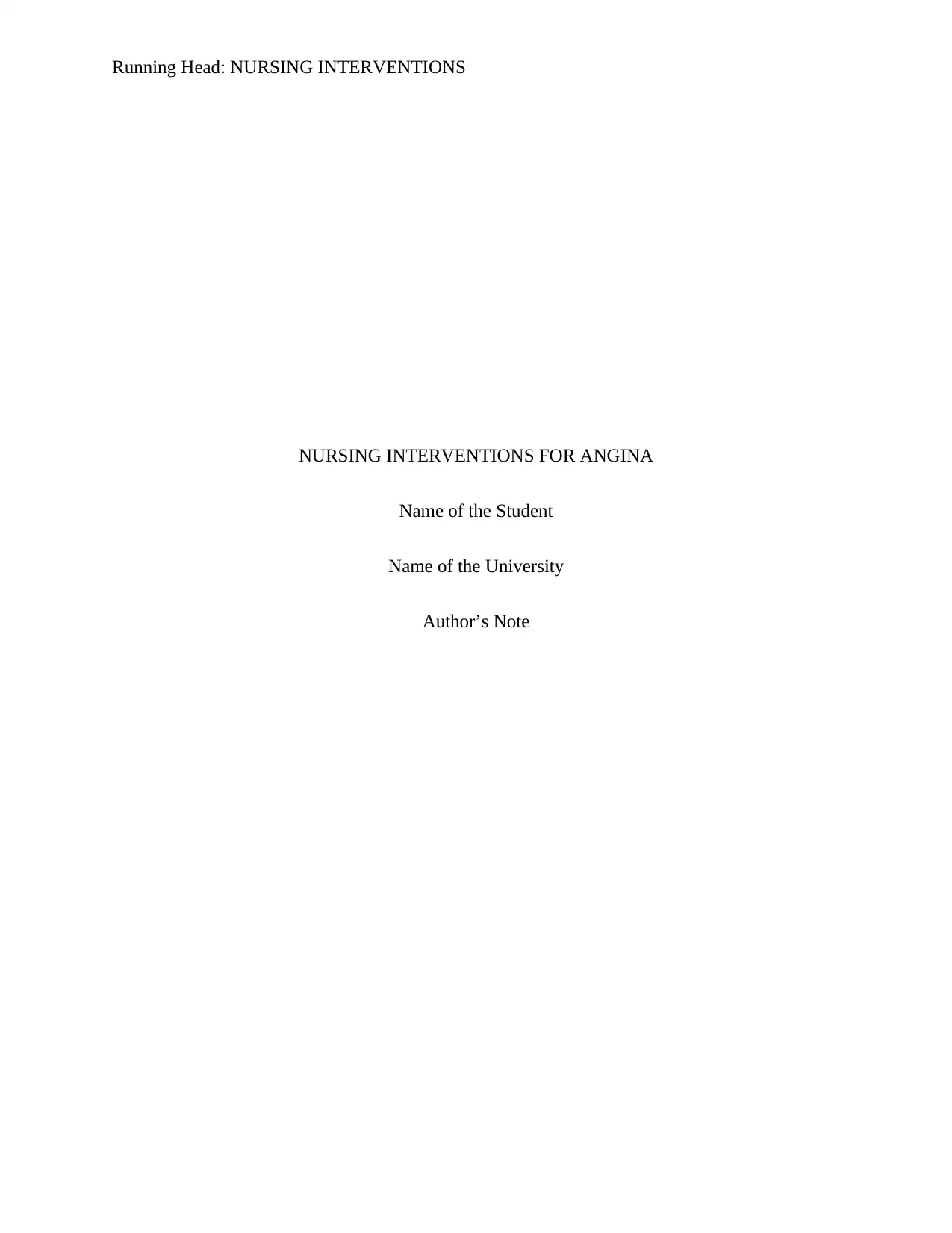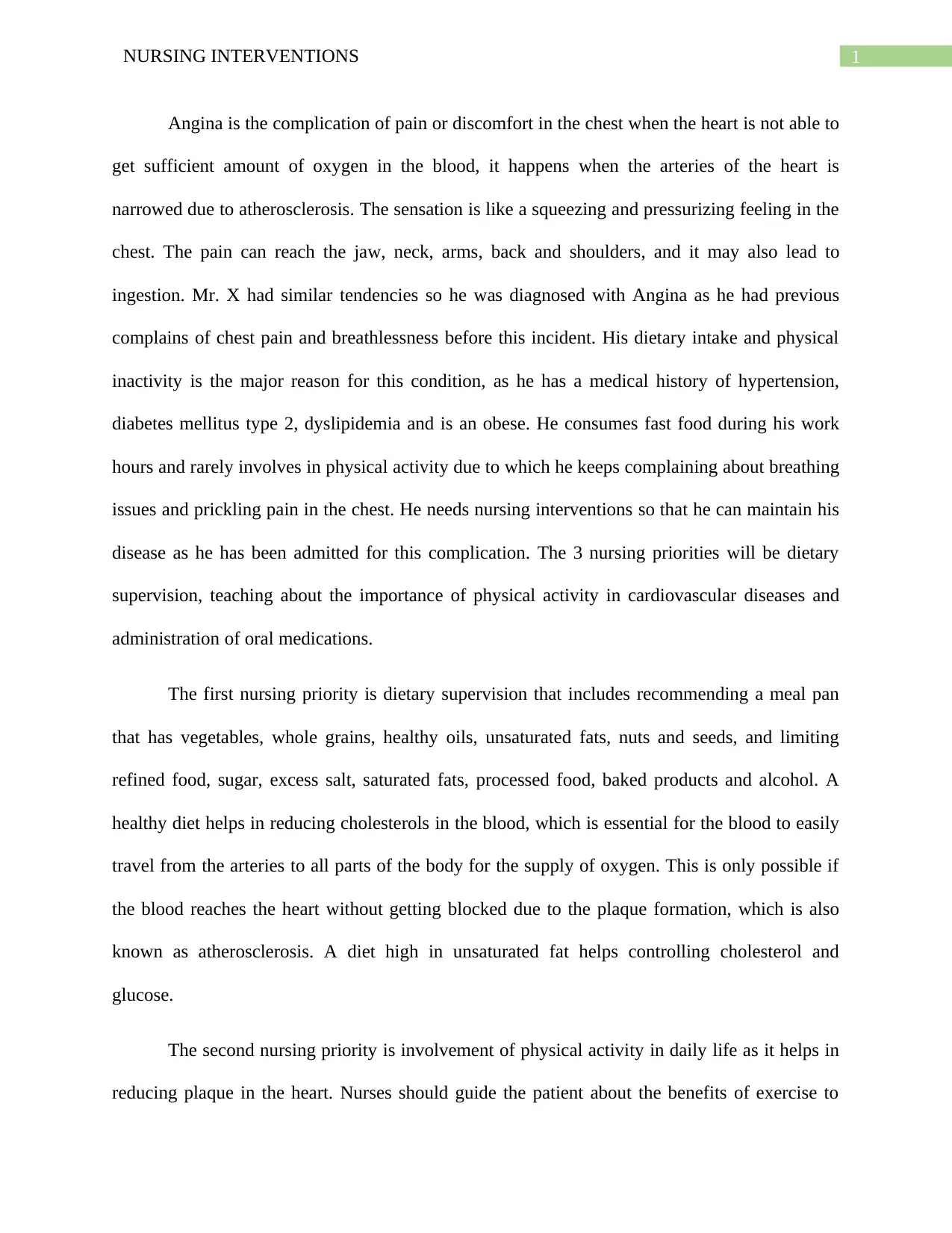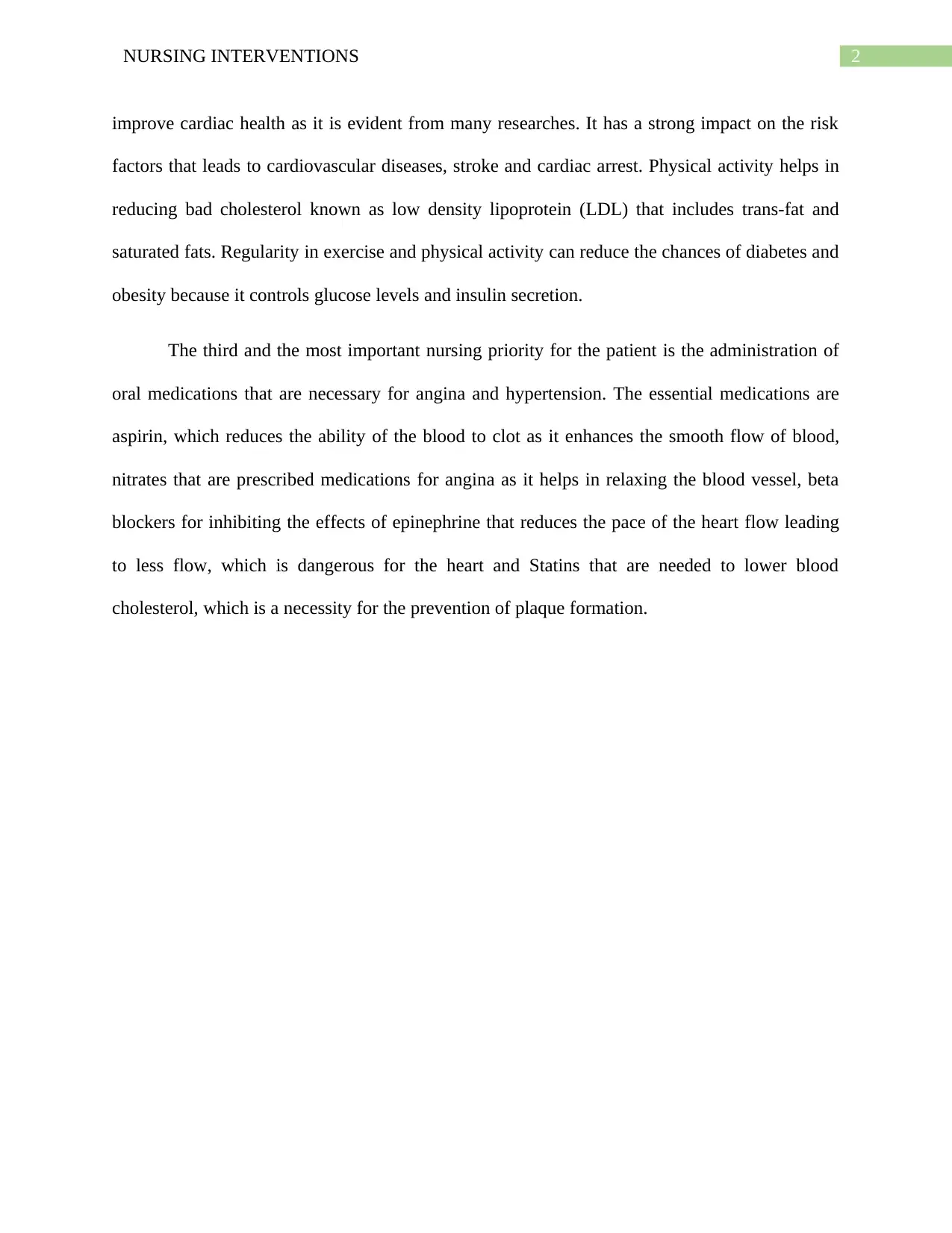Nursing Interventions for Angina: A Comprehensive Case Study Analysis
VerifiedAdded on 2022/08/12
|3
|584
|15
Report
AI Summary
This report focuses on nursing interventions for angina, a condition characterized by chest pain due to reduced blood flow to the heart. The case study involves a patient with a history of hypertension, diabetes, and obesity, highlighting the significance of lifestyle factors. The primary nursing priorities include dietary supervision, emphasizing a diet rich in whole grains, healthy oils, and unsaturated fats while limiting refined foods, excessive salt, and saturated fats. Physical activity is also crucial, as it helps reduce plaque formation in the heart and manage risk factors like high cholesterol and diabetes. The third priority involves the administration of oral medications such as aspirin, nitrates, beta-blockers, and statins to manage symptoms and prevent further complications. This comprehensive approach aims to improve the patient's cardiac health and overall well-being by addressing lifestyle factors and implementing appropriate medical interventions.
1 out of 3










![[object Object]](/_next/static/media/star-bottom.7253800d.svg)